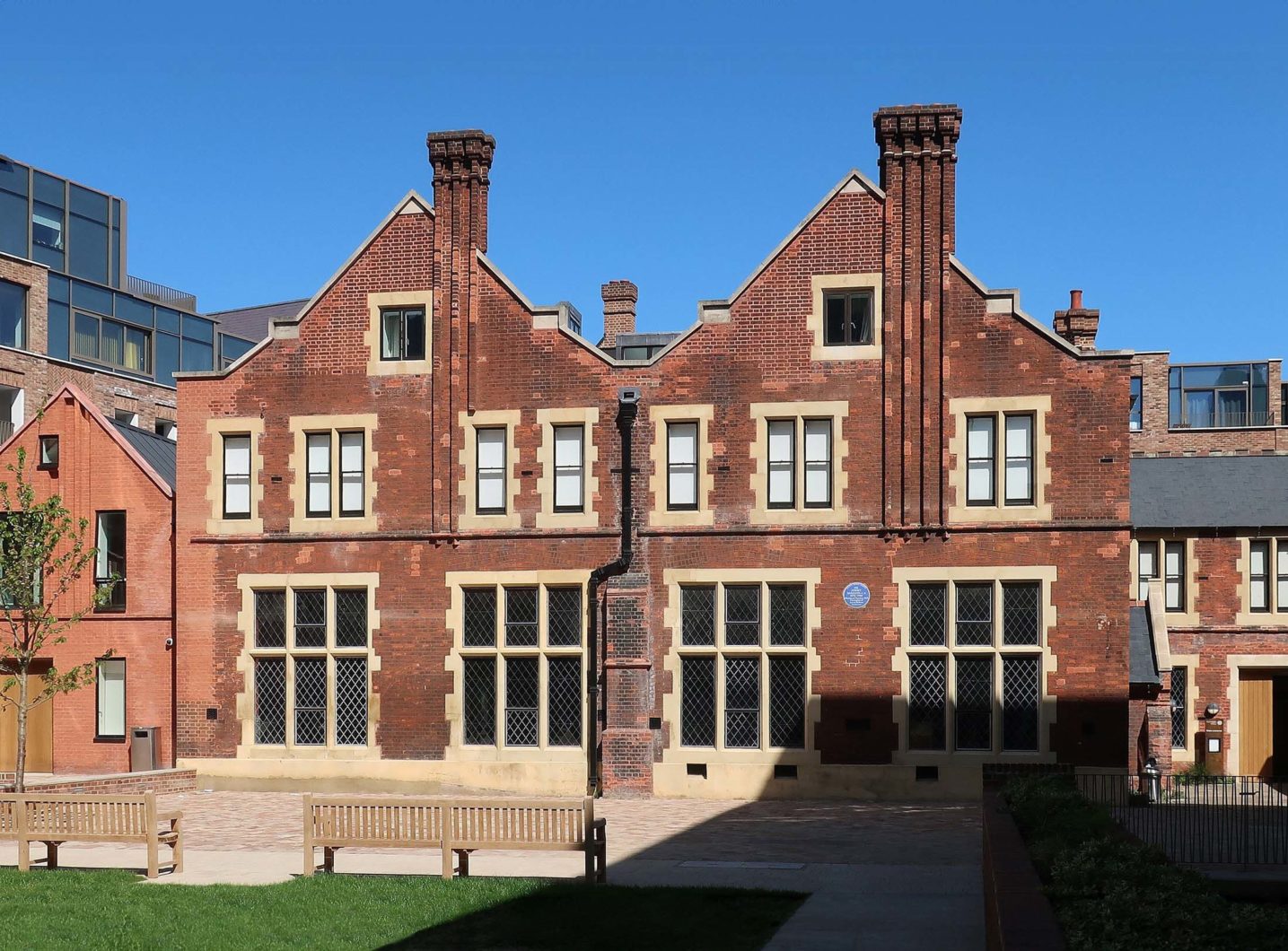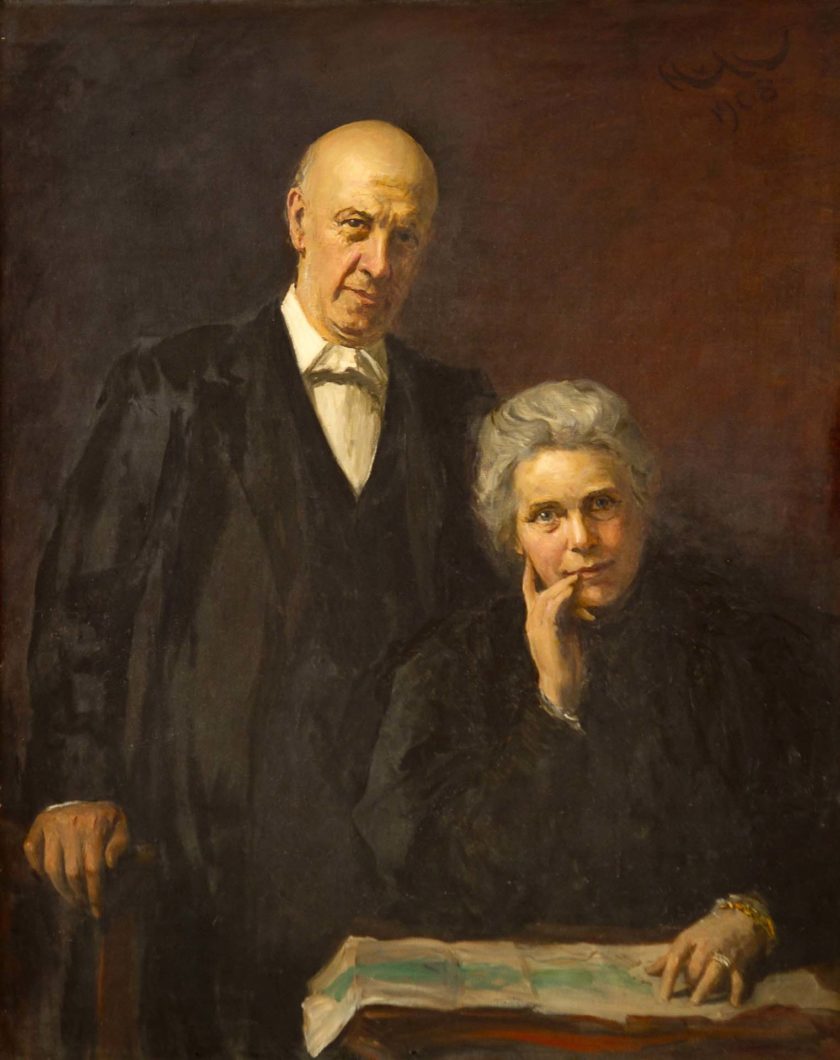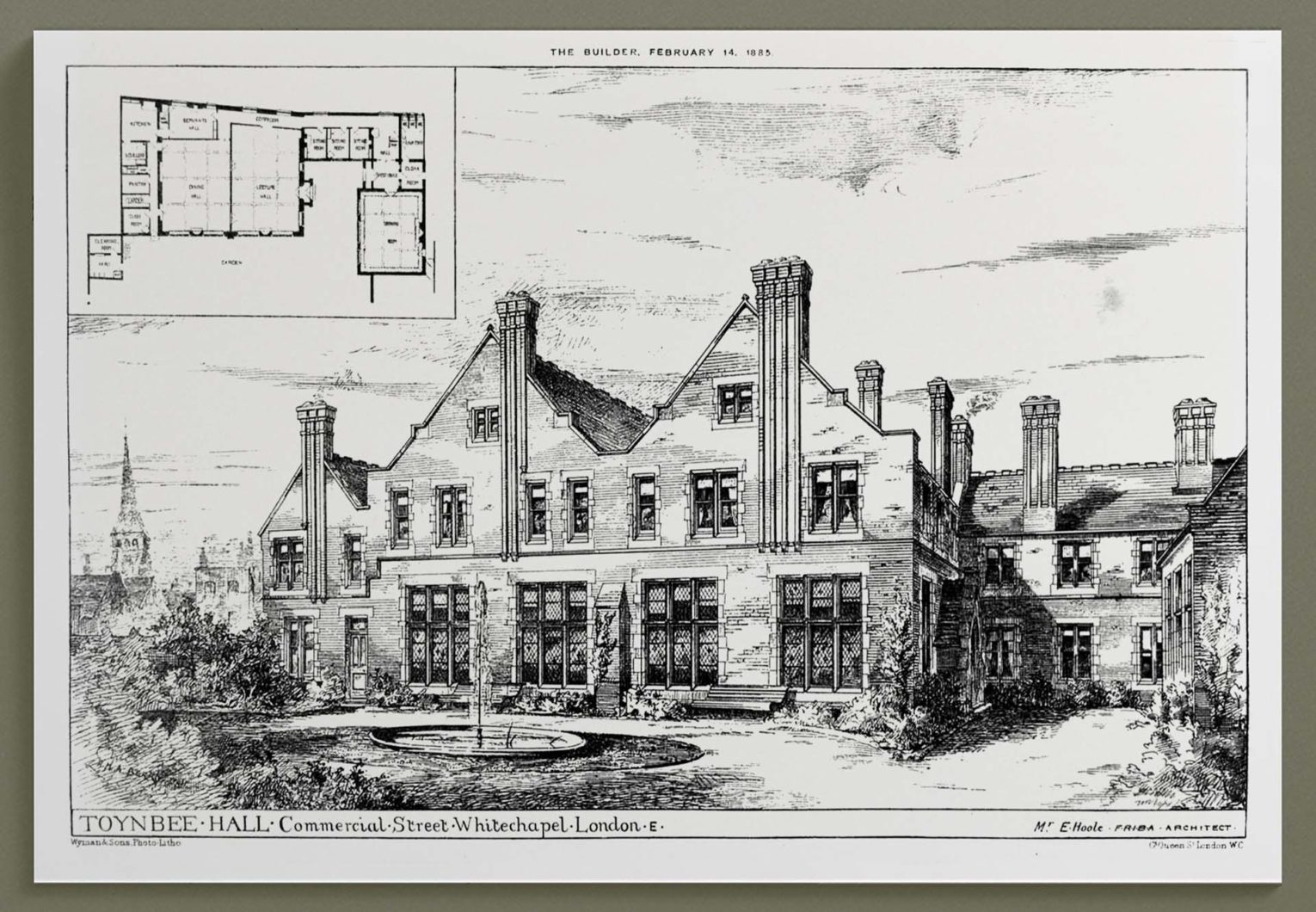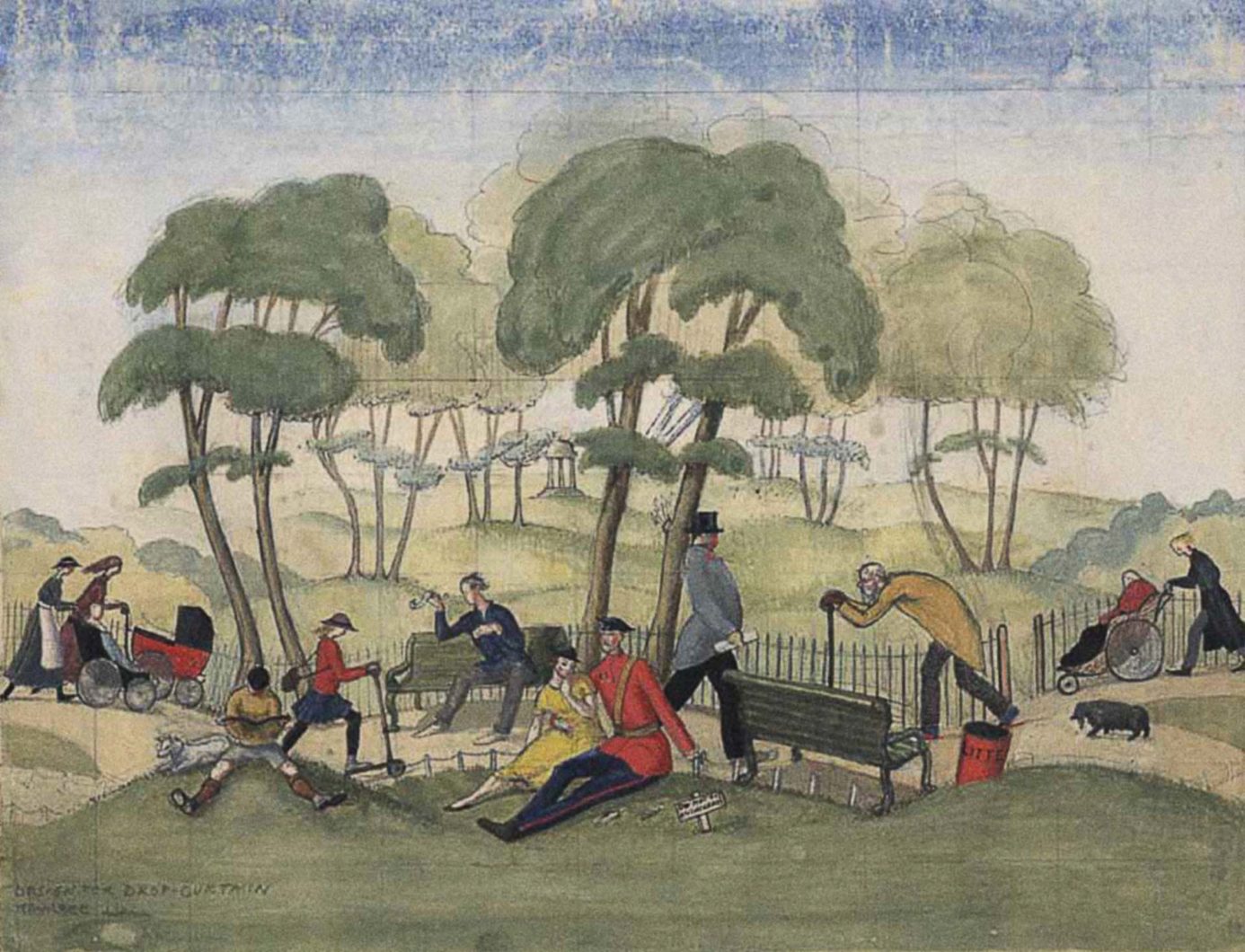Toynbee Settlement
A civic organisation working for social and economic reform for all




Initiator(s)
Canon Samuel and Henrietta Barnett
Description
The Toynbee Settlement at Toynbee Hall was founded on Ruskinian Principles in the East End of London, and is the home to a charity of the same name. It works to bridge the gap between people of all social and financial backgrounds, with a focus on working towards a future without poverty. It was the first of the university settlement houses that strove to stimulate social mobility by encouraging rich and poor to live closely together and become a more interdependent community. It was named in memory of their friend and fellow reformer, Oxford historian Arnold Toynbee, who died the previous year. It was built specifically for the charity as a centre for social reform and remains active today. In the late Victorian and Edwardian period, settlements were residential ‘colonies’ of education for either men, or women, or both, in a deprived area of a city, often associated with an Oxbridge college or other educational institution. Graduates or others with the means to do so, would come into residence for a period of time, and engage in community-based activities, including youth work, adult education, social work and the provision of legal advice.
Goals
The overall goal was social and economic reform for all.
Beneficial outcomes
Increased physical, social wellbeing for individual and group users.
Location
United Kingdom
Users
Open to all users.
Maintained by
Toynbee Hall
Duration
1884 - ongoing
Category
Scientific
Pedagogical
Politics
Urban Development
Economy
Environment
Social






